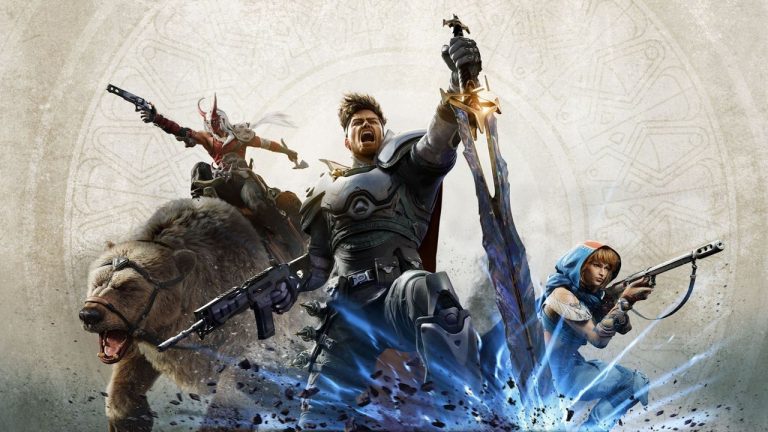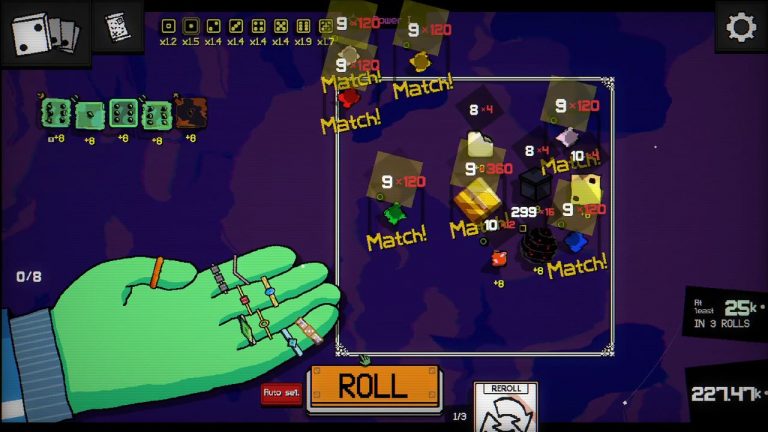Video games are enjoyed by over 3 billion players around the world, making them one of the most popular forms of entertainment on the planet. They offer the perfect outlet to switch off from the stresses of daily life or connect with friends from the comfort of your home. Nevertheless, fun isn’t the only benefit that gaming can bring.
The industry has evolved at a rapid pace and modern video games can teach a host of skills that can be transferred to real-world settings. Here are eight situations in which video games can aid your cause.
#1. Playing In Online Casinos
Many video games can be used to simulate real-world scenarios. However, digital versions of popular casino games have existed for decades. And they continue to attract millions of players daily. Frankly, it’s not hard to see why when you can’t lose money.
Practice and experience can only help a casino player become better at their chosen game. Playing free slots online isn’t only a great way to relax and get the buzz of gambling without spending money. It also teaches a player to become more familiar with the mechanisms, which can only help them when hitting slots in a real casino.
Similarly, playing poker on video games can help players develop a better understanding of the rules and build a robust strategy. So, when they do come to play in the casino – or against friends – their position will be strengthened.
#2. Playing Board Games
Casino games aren’t the only genre that can be found in both physical and digital variants. Board games ranging from Monopoly to Uno are played by millions of players via apps, browsers, and console games.
As with casino games, spending more time playing board games against AI or online users helps players develop their skills. Meanwhile, if you play D&D or any form of fantasy MMORPG, it’ll aid your RPG board game tactics. This is true even when the titles played in the two distinct environments are different.
If nothing else, playing video games teaches you to think about how another player’s moves, hands, or actions can influence your game. In turn, this can help you become a far stronger player across a plethora of board games.
#3. Solving Logical Problems
Video games often revolve around problem-solving, even when you step away from the puzzles genre. Whether it’s planning how to get Super Mario through a maze or how to finally find and target a boss’s weak spot, you’re naturally thinking.
The problems solved in the best mobile RPGs or console FPS games may be vastly different to the issues faced in daily life. Still, building a mindset where you are able to solve problems and view challenges from a logical viewpoint will make a world of difference. Better still, it happens organically regardless of the genre you play.
It is a valuable life skill that could improve your life in a range of situations at work. Similarly, it’ll help you when encountering problems with DIY projects. It can even help you organise schedules with greater success.
#4. Developing Hand-Eye Coordination
Most video games require some level of hand-eye coordination. Even when playing slow titles, you have to press buttons or use controllers so that the on-screen characters can do what the player wants them to.
However, the majority of video games now require very fast reflexes. It can become a very powerful tool, especially as new titles are ultra-realistic. In fact, several Formula 1 drivers use the simulated world of F1 video games as a part of their training. It helps with their reactions as well as learning tracks without visiting them.
While the average player won’t have a setup that emulates a real car, the improved reflexes can translate to improved driving. Increased hand-eye coordination can help with catching, spatial awareness, and real-life settings.
#5. Slowing Cognitive Decline
Video games aren’t only great for younger players. In truth, older players are perhaps the greatest beneficiaries of all. The dexterity needed to play video games naturally helps them from a physical viewpoint. It can also be a valuable tool for the mind.
Playing video games is shown to help boost memory. It additionally keeps the mind active and in a problem-solving state can aid cognitive function. Slowing the decline might not be something that you necessarily notice. However, you would certainly notice the negative impacts should the issue go unmanaged.
Improved memory and cognitive skills will help the player in virtually every daily setting. Whether it’s completing daily errands, enjoying hobbies, or interacting with others doesn’t matter. Frankly, this is one of the greatest benefits video games have to offer.
#6. Improving Social Skills
Human interactions are integral to our lives. The impact ranges from improving our happiness to influencing the way we interact with our surroundings. Video games were once viewed as anti-social. In truth, they can support social activities in a big way.
Many video games are now online. Meanwhile, with the right headset, you’ll be able to communicate with players in real-time. From teammates to opponents, those interactions will boost your comfort with talking to strangers. It can subsequently help you out in many real situations, especially in your career or travels.
You will also become better at finding common ground with people to develop more meaningful connections. This is combined with the fact that online gaming promotes active listening. So, you will find that your overall communication skills soar.
#7. Developing Survival Skills
Even when video games are set in fantasy worlds, they often emulate real life. Therefore, it should be no surprise to discover that some of the skills you learn in the virtual world can translate to the real one. This could relate to RPGs, FPSs, adventure games, and more.
In extreme cases, skills developed in gaming environments have saved lives. One 12-year-old boy in Norway managed to save his sister and himself from a moose attack. He knew what to do as a direct result of playing World of Warcraft. It is just one example of how games are accurate and deliver life lessons that unexpectedly be relevant one day.
It’s unlikely that most people will need to know how to stay safe from a moose. Still, the transferability of skills and knowledge from the digital world to the real one is incredible. Video games are one of the best ways to acquire knowledge, not least because it sticks.
#8. Staying Calm
In the above example, the mindset is “What did I do in a virtual representation of this scenario?”. In many cases, though, video games have a more passive influence that simply helps us remain calm in situations. However, the impact it has on your life can be huge.
From playing indie games on consoles to blockbuster titles, gamers take in lots of info. Visual clues, audio clues, and past experiences all help. Players can use those same elements in real-world settings. In turn, they can take a step back to see a situation in its entirety. They will also know from gaming that unnecessary panic rarely leads to success.
On a similar note, games know that failure isn’t the end of the world. There is always a chance to go again. This philosophy can be very useful in relationships, work projects, and a host of other situations.
The Final Word
If you want to enjoy your games purely for fun, go for it. There is nothing wrong with having a hobby that fills you with joy. However, if you’re looking to vindicate your activities or prove that they can be productive, the info above will have levelled up the excitement. Game on.
The post 8 Ways That Video Games Can Help You In Real World Settings appeared first on LitRPG Reads.












